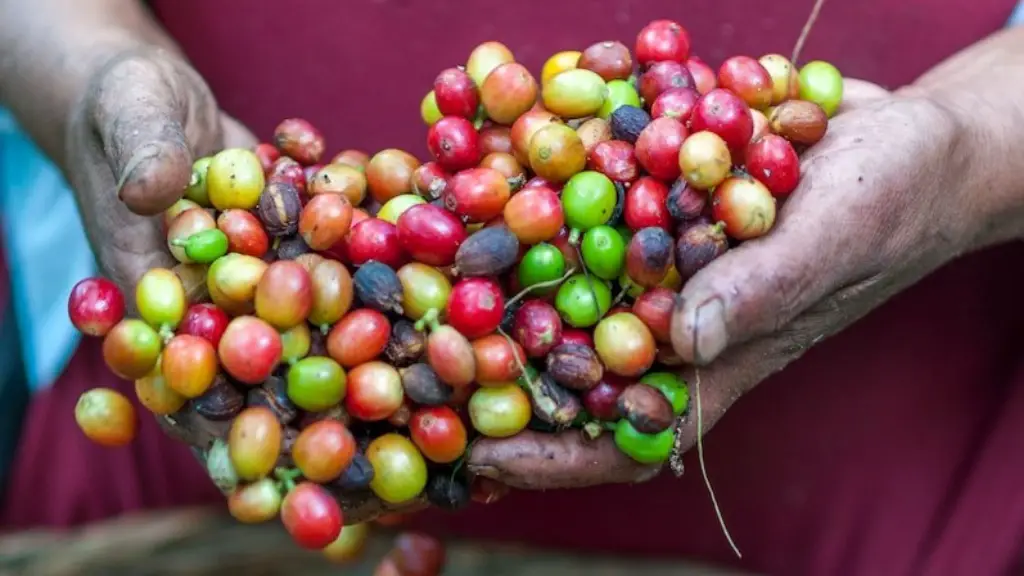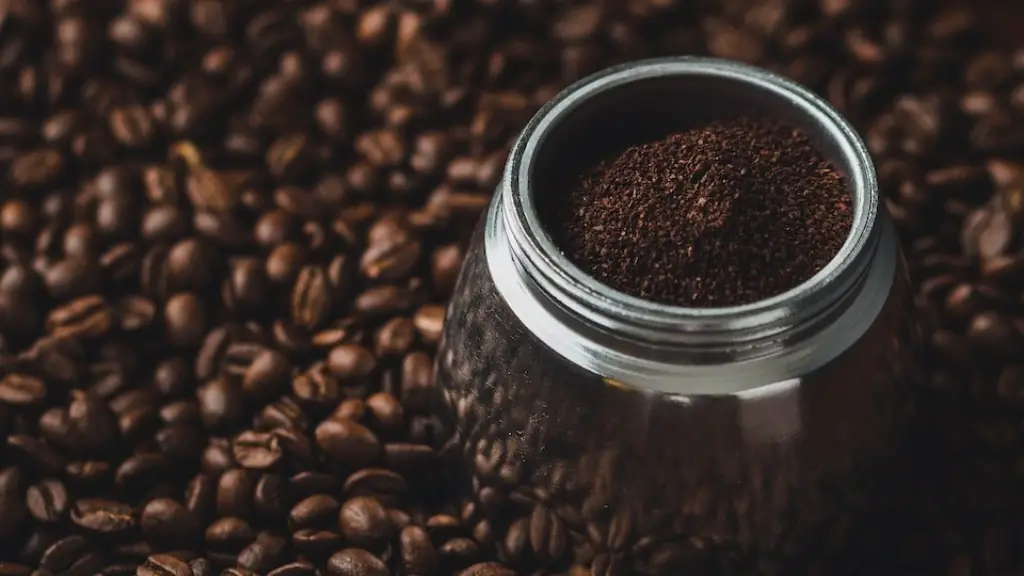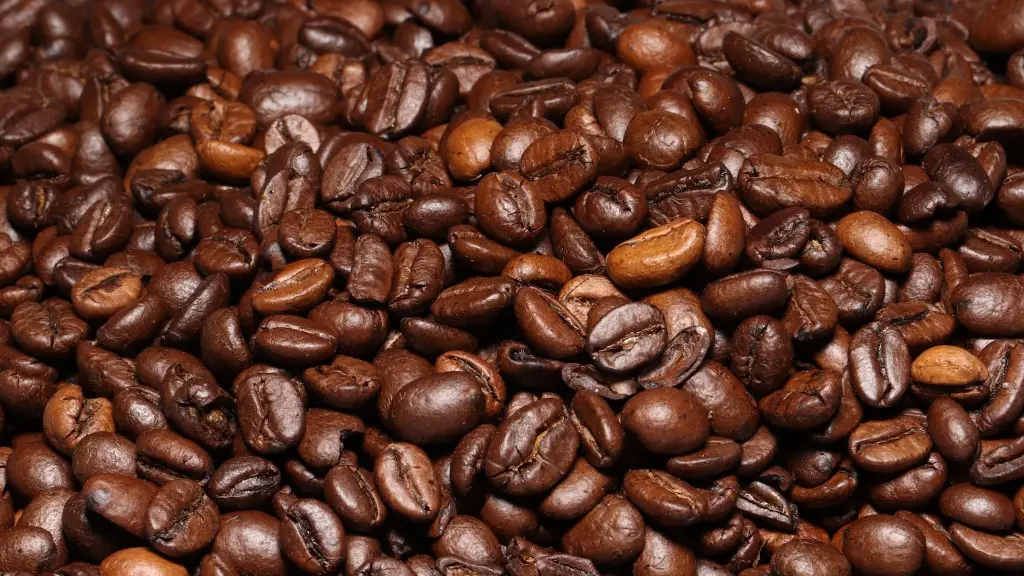Coffee has become an integral part of many people’s morning routines. But what happens when you find yourself with leftover coffee from the day before? Is it still safe to drink? How can you tell the difference between fresh and day-old coffee?
The best way to judge whether day-old refrigerated coffee is safe to drink is to observe its colour, taste and smell. If the coffee looks and smells the same as when you made it, then it’s likely to be safe to drink. Any change in colour, taste or smell could indicate bacteria has started to grow.
On average, day-old refrigerated coffee should remain safe to consume for up to three days past the making date. However, this will depend on the specific type of coffee and the temperature it’s stored in. If stored in temperatures below 7 degrees celsius, it can last for days beyond three days.
It is best practice to rinse the coffee container before pouring any day-old coffee into it, in order to eliminate any bacteria. Even after rinsing, if the coffee tastes gritty or has an acrid smell, it is better to throw it away and make a fresh one.
Equally important is how the coffee was prepared. An espresso or iced coffee that hasn’t been kept below 7 degrees celsius is unlikely to be safe to drink after 24 hours. On the other hand, Turkish coffee (also known as Greek coffee) can remain safe to drink for up to 3 days after its making date, when stored in the refrigerator.
When it comes to reheating coffee, it is advisable to never surrender to the temptation. Reheating coffee can increase the risk of bacteria contamination, as the water molecules that make up the coffee find it difficult to evaporate. Therefore, any bacteria present in the coffee can stay alive, leading to a risk of food poisoning.
Experts recommend not to drink coffee that has been refrigerated and left out at room temperature for more than two hours. The temperature change can quickly make the coffee more susceptible to the growth of bacteria, rendering the coffee not safe to drink.
The Temperature
When it comes to storing coffee, the temperature it is stored in plays a significant factor. As previously mentioned, if the coffee is stored in temperatures below 7 degrees celsius, it can last for days beyond three days. If the temperature is higher, the coffee is likely to not be safe to drink after 24 hours.
Research has shown that bacteria can grow rapidly when the temperature exceeds 40 degrees Celsius, regardless of the type of food or beverage. It is never recommended to leave coffee out at room temperature for extended periods of time, as temperatures higher than 40 degrees Celsius increase the risk of bacteria contamination.
That being said, it is important to remember that beverages such as coffee stored above 7 degrees celsius are unlikely to be safe to drink after a certain amount of time. To ensure the safety of your coffee, it is best to keep it in the refrigerator and throw away any leftovers after three days past its making.
The Ingredients
The type of ingredients used in the coffee can also have a major impact on how long it remains safe to consume. Coffee beans of higher quality tend to have a longer shelf life because they are not treated with preservatives or additives. Coffee beans that are treated with additives such as sugar and milk will tend to spoil more quickly.
Milk added to coffee not only alters its taste but makes it more vulnerable to bacteria. Refrigerating the milk-based coffee can extend its safety level to up to three days past its making date, as long as it is kept in temperatures below 7 degrees celsius. However, if left out at room temperature for extended periods of time, the milk could quickly become infected with salmonella or other bacteria.
In addition, the type of milk used when making the coffee can also have an impact. Cow milk generally spoils more quickly than almond milk, for example. When consuming milk-based coffee, it is advisable to use it before the making date expires.
The Containers
The type of container also affects the longevity of coffee. Coffee stored in an air-tight container has fewer chances of being affected by bacteria, whereas an open container creates a higher risk of bacteria contamination. It is also important to remember that plastic containers are not air-tight and must remain closed and in the refrigerator to extend the coffee’s shelf life.
In contrast, a glass container can keep the coffee safe for longer. That being said, it is still important to store the coffee in the refrigerator. If the glass container is left out at room temperature and filled with coffee, it has still chances of becoming contaminated overtime.
The Process
The process of making coffee also impacts how long it remains safe to consume. Generally speaking, the fresher the coffee, the longer it will last. The process of extracting coffee through heat impacts the quality of the coffee and can also extend its shelf life, compared to the process of directly adding coffee grounds to boiling water. Reheating coffee again, decreases the chances of the coffee remaining safe past its making date.
When preparing coffee for a few days in advance, it’s important to cool it down quickly. To do this, cold temperatures must be applied during the cooling stage. If the coffee is gradually cooled down as opposed to quickly cooled down, the chances of it lasting past its date expire shrink. When cooled quickly, air and watertightness must also be applied. This will help preserve and protect the coffee, ensuring that it is safe to drink for the desired amount of time.
The Health Implications
When it comes to drinking day-old refrigerated coffee, there are two main health risks to consider. The first being contamination with bacteria, and the second being exposure to toxins. Unfortunately, it is hard to identify the exact risks that come with consuming day-old coffee, as every case is different.
Consuming coffee with bacteria can lead to food poisoning. Symptoms of food poisoning such as vomiting, nausea, and fatigue can occur after consuming day-old coffee. On the other hand, exposure to toxins can lead to complications down the line. While it is impossible to specify the exact risks associated with drinking day-old coffee, it is best to use caution when consuming it.
That being said, some people find that refrigerated coffee tastes better than fresh coffee. If you are curious to try, it is recommended to first look at all of the factors as mentioned above, that may contribute to the safety or risk of the coffee. Only if all of the criteria is met, it may be appropriate to then consume the day-old refrigerated coffee.
The Final Verdict
When it comes to drinking day-old refrigerated coffee, there is no clear answer as to its safety. Factors such as the type of coffee, the temperature it is stored in, the type of container, and the process of making it, can all significantly change the safety of the coffee. It is therefore important to take into consideration all of these factors before deciding to drink it.
The one thing that researchers are sure of is that reheating coffee increases the risk of bacteria contamination and should be avoided if possible. The best course of action to remain safe is to always rinse the container and observe the coffee’s colour, taste, and smell before consuming. Ultimately, if the coffee tastes strange or has an acrid smell, it is best to throw it away and make a fresh one to avoid potential risks.





